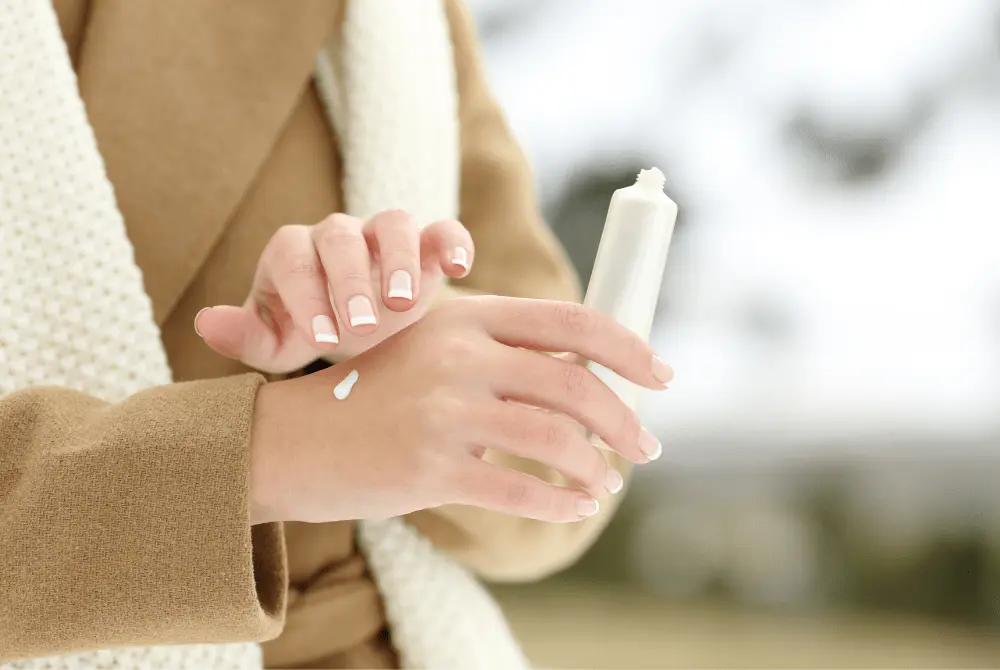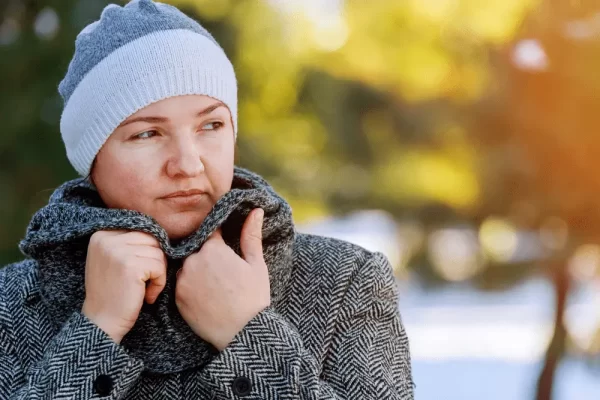As the winter season approaches, it indicates hot coffee, cozying up inside your blankets, and dealing with cracked or dead skin. People who generally suffer from dry skin in summers face difficulty managing their skin during winters, which then turns extremely dry and cracked.
The skin does not only turn dry, but the skin’s cracking makes one feel pain and discomfort due to the skin’s protective barrier losing its grip to safeguard the top layer, which causes the skin on our hands, feet, or heels to dry. We often are cautious about our health, and we protect it from any diseases by trying to be as active during winters as it is done during summers.
But we forget to be mindful of our skin health, especially during winters when the outside air lacks moisture and the dry air leads to dryness on various parts of the body. Your ut over the dry area mainly cracked skin, could further lead to bleeding, flakiness, or itching.
The more one is exposed to outside dry air, the more they will experience dry skin for which they would want to find a solution. Generally, people who suffer from cracked skin during the winter months find it difficult to apply any skincare product or contact any house cleaning product.
You must be aware that these cracked skin condition could be any medical condition too which you are unknown about; hence below are some of the reasons why you might have extreme cracked or dry skin during winters:
The Causes of Cracked Skin
Some of the reasons that could lead to the development of cracked skin during winters could be:
Eczema
It is one reason your skin could feel extremely dry, especially during the winter months when the air outside lacks moisture. People with an initial skin condition like eczema do always experience dryness and itchiness on their skin. Due to weather conditions or any particular use of a skincare product, find the skin surface cracked, hence turning red in appearance.
A skin condition like eczema occurs when the protective skin layer allows too much moisture to leave the skin, which causes the skin cells to lack moisture. What winter month does to these cells is shrink them even more due to not enough moisture to receive from outside, which might be possible during the summer season.
It’s best not to keep scratching the affected area at this point as the rash only turns worse and feels discomforting.
Dry Skin
Dry skin is an apparent reason to turn into cracked skin during the winter season most of the time. During the winter months, the air outside lacks humidity; its dryness causes the skin to become broken. It then starts to either bleed or become flaky and nasty in appearance.
There could also be the development of cracked lips due to the dry air, and lips are the most sensitive area affected during the winters. Skincare experts have always mentioned not to pick or lick your lips when they are cracked, as it only makes the condition worse.
Use of Indoor methods to stay warm
Yes! We are mostly sitting in front of heaters during winters because that is the only way we get some comfort from the otherwise chilling temperatures outside. We immediately start to feel colder inside our homes if we are sitting ideal without a heating instrument in front of us.
But what we fail to realize is all these heating devices affect our skin in more ways than we can imagine. Sitting more in front of heaters could lead to dry skin because the dry air inside our houses is drying our skin and the mucous membrane, which layers various cavities of the organ in our body.
The drying of the membrane leads to chapped lips or crapped lips too. Various other parts of the body, such as hands or feet, seem drier and flakier, also, in this case.
Frequent Hand Washing
Since the beginning of the COVID-19 pandemic, we have been repeatedly advised to sanitize and wash our hands regularly to prevent the infection from contacting us. This habit of hand sanitizing and washing makes the hand rough and drier than usual.
The consistent use of higher concentrations of alcohol from hand sanitizers, soap, and water lessens the natural oils of the skin and the dry air of the winter months causes the hands, or even the feel from consistent washing, to go dry and cracked, which even further leads to bleeding.
Going for Long Hot Showers
Hot showers are our best rescue from cold winters, especially when we come from windy, cold weather outside. No matter how tempting the hot water seems to us, it could strip your skin from all of its natural oil causing it to appear flaky and drier.
The hot water on our seeks seeps inside, and the cold air we have been exposed to in the outer environment in combination helps make the body dry and itchy.
You are not keeping yourself hydrated.
We do not feel very thirsty during winters than summers when we are drenching in sweat and lose so much water from our body. But we also lose water from our skin during winters and compensate for that loss; we must drink water even in winters.
People mostly who stay indoors and are exposed to warm heat from heaters should consume more water. Our body is made up of 70 percent of water, and it helps keep the skin cells soft and plumpy. With less water consumption during winters, our skin cells do not receive that moisture and become drier and begin cracking.
How to treat dry or cracked skin during winters?
Here are some tips and tricks you can try during winters to prevent your skin from drying and losing its moisture, which could end up cracks on your skin.
- If you have eczema flare-ups, go for recommended skincare ointments from the doctors who could help you relieve scratching, consistent itching, and dry skin.
- In case of an existing skin condition like eczema, you should be mindful of your woolen clothes’ quality not to cause your skin to feel irritated or itchy. Do not wear fibers that feel more like steel wool and are less comfortable on the skin.
- Do not directly apply matte or long-wear lipstick on your lips, and even if you do, remember to apply lip balm first below the liquid lipstick.
- Drink more fluids during winter and avoid caffeinated drinks that could cause loss of water even more.
- Try looking for lotions or moisturizers with ingredients such as olive oil, jojoba oil, shea butter, lactic acid, and glycerin. Also, remember to apply moisturizer on your hands’ post washing or sanitizing them.
- Try to shower in warm water rather than using hot water. Do not go for long baths and pat with a dry and soft towel but not wet ones.
- Apply enough moisturizer to your hands and feet, which are not harsh on your skin; instead, enrich your skin with essential oils.
In case of a severe infection due to cracked skin, meet your skin expert as soon as possible to identify any medical condition that may be causing the skin to dry intensively, leading to bleeding, pain, or even swelling.




